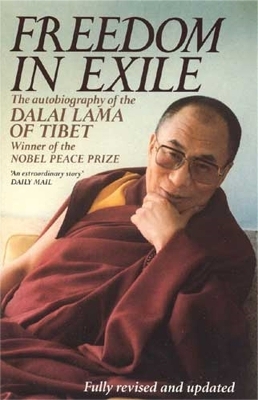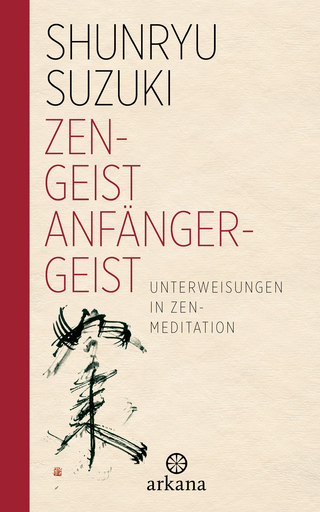
Freedom In Exile
The Autobiography of the Dalai Lama of Tibet
Seiten
1998
Abacus (Verlag)
978-0-349-11111-7 (ISBN)
Abacus (Verlag)
978-0-349-11111-7 (ISBN)
The autobiography of the Dalai Lama of Tibet, a fascinating insight into the mind of one of the greatest contemporary spiritual leaders
'An extraordinary story' Daily Mail
'Compelling, fascinating, eye-opening' Washington Post
'A vital historical witness, not only to inhumanity but to compassion' Los Angeles Times
'Forthright... often amusing' New York Times
In 1938 a two-year-old boy was recognised through a traditional process of discovery as being the reincarnation of all previous Dalai Lamas, the spiritual rulers of Tibet. Taken away from his parents, he was brought up in Lhasa according to a monastic regimen of rigorous austerity and in almost total isolation. Aged seven he was enthroned in the 1000-room Potala palace as the supreme spiritual leader of a nation the size of Western Europe, with population of six million. And at fifteen, he became head of state.
With Tibet under threat from the newly Communist Chinese, there followed a traumatic decade during which he became the confidant of both Chairman Mao and Jawaharal Nehru as he tried to maintain autonomy for his people. Then in 1959, he was finally forced into exile - followed by over 100,000 destitute refugees.
Here, in his own words, he describes what it was like to grow up revered as a deity among his people, reveals his innermost feelings about his role, and discusses the mysteries of Tibetan Buddhism.
'An extraordinary story' Daily Mail
'Compelling, fascinating, eye-opening' Washington Post
'A vital historical witness, not only to inhumanity but to compassion' Los Angeles Times
'Forthright... often amusing' New York Times
In 1938 a two-year-old boy was recognised through a traditional process of discovery as being the reincarnation of all previous Dalai Lamas, the spiritual rulers of Tibet. Taken away from his parents, he was brought up in Lhasa according to a monastic regimen of rigorous austerity and in almost total isolation. Aged seven he was enthroned in the 1000-room Potala palace as the supreme spiritual leader of a nation the size of Western Europe, with population of six million. And at fifteen, he became head of state.
With Tibet under threat from the newly Communist Chinese, there followed a traumatic decade during which he became the confidant of both Chairman Mao and Jawaharal Nehru as he tried to maintain autonomy for his people. Then in 1959, he was finally forced into exile - followed by over 100,000 destitute refugees.
Here, in his own words, he describes what it was like to grow up revered as a deity among his people, reveals his innermost feelings about his role, and discusses the mysteries of Tibetan Buddhism.
His Holiness the Fourteenth Dalai Lama, Tenzin Gyatso, is the spiritual leader of the Tibetan people and of Tibetan Buddhism. He was awarded the Nobel Peace Prize in 1989 and the U.S. Congressional Gold Medal in 2007. He is the author of, among many other books, the international bestseller An Appeal to the World and the New York Times bestseller The Book of Joy, which he coauthored with Archbishop Desmond Tutu. He lives in exile in Dharamsala, India.
| Erscheint lt. Verlag | 2.4.1998 |
|---|---|
| Zusatzinfo | Section: 8, b/w |
| Verlagsort | London |
| Sprache | englisch |
| Maße | 197 x 124 mm |
| Gewicht | 274 g |
| Themenwelt | Literatur ► Biografien / Erfahrungsberichte |
| Geisteswissenschaften ► Religion / Theologie ► Buddhismus | |
| ISBN-10 | 0-349-11111-1 / 0349111111 |
| ISBN-13 | 978-0-349-11111-7 / 9780349111117 |
| Zustand | Neuware |
| Haben Sie eine Frage zum Produkt? |
Mehr entdecken
aus dem Bereich
aus dem Bereich
Philosophische Betrachtungen
Buch | Softcover (2024)
Aufbau TB (Verlag)
12,00 €
Unterweisungen in Zen-Meditation
Buch | Hardcover (2024)
Arkana (Verlag)
20,00 €


